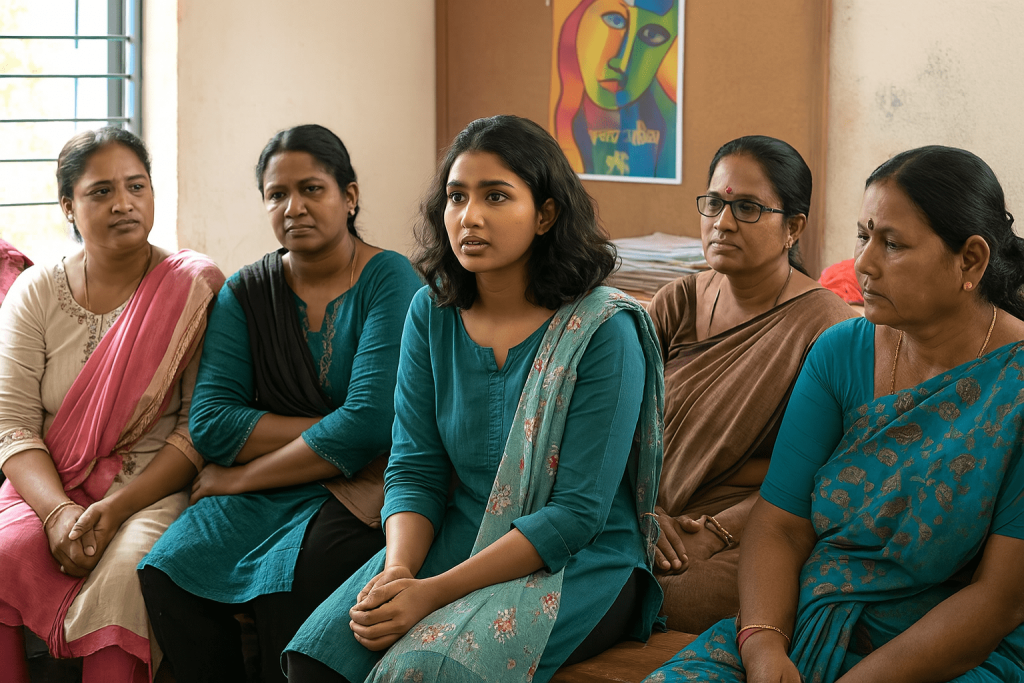It’s been more than two months of learning and unlearning at the Indian School of Development Management now. It has been a journey of realising and exploring about my self and my perspective of a society which has eventually shaped my actions and which has begun to change.
I wish I could have experienced this space before I started working in the social sector. All this while, I was working in the sector without even realising what development meant to me. Maybe I never bothered to think about it, or perhaps, I was reluctant to question myself because I knew I didn’t have the answers. I still don’t have complete answers – but yes, I am comfortable questioning myself, my beliefs and the choices I make. For me, not having answers is a more peaceful space now – as I see it as an opportunity to learn, grow and contribute better.
I still remember the project I was working on as a core team member with four other members and a mentor in one of the organisations that work with female commercial sex workers (referred to as didis in this piece) in one of the red-light districts of the city. The vision was to provide alternate life choices for our didis and help them break free from the shackles of subjugation, and live a life of dignity and respect.
I came up with fancy financial projections in Excel and PowerPoint presentations to sell it to different donors. The idea was compelling, and we also got our initial funding from a donor, which could sustain the project for another year. And we started a project in the catering domain with two didis who signed up to own the project.
We started off well. However, after a few months, the business started to fall drastically, and the didis found it difficult to make profits. It became a money-burning project. Even then, we decided that money was not a concern and we simply wanted our didis to build their skills in entrepreneurship and develop certain key values that would help them to excel in the life choices they made. But we could never decide on the set of values that would be necessary for them to become successful entrepreneurs.
We failed to harness their commitment as role-models. Thus, we could not get more of them to join this movement of change. We had envisioned the project to be ‘owned’ by didis – but all the decisions were made by us and only a few of the meetings included voices from the didis. Soon, it became a model where they were simply employed as salaried employees – and there was very little space for them to actively participate in decision making.
Now when I look back at those decisions, I can clearly see that we missed out on realising our values. Maybe the team itself did not have a coherence in values. We never spoke about our values as a design team. We had assumed that didis would be undergoing value-based training – but there were no clear discussions on what those values would be. In fact, it now sounds strange to me that we agreed to something which would involve the team deciding what values the didis should espouse.
Also, the project lacked a most critical component – an effective manager. Amongst the two different leaders appointed at various points of time, one of them had a different full-time job – so clearly, this was not the top priority. We were all leading it as per the convenience of our so-called ‘expertise’.
Here at ISDM, I am realising that how important it is to root your vision in the values you believe in. No one else can decide for your values except your own self. I now realise that I did not recognise my gender biases when I assumed that ‘managing the kitchen’ was a skill that all women would know, whether they be in the commercial or the domestic sector. How inappropriate was it for me to assume that our didis would be good at cooking and managing the kitchen! Maybe it was just a judgemental assumption I made for my own convenience. I think the picture would have been different had we asked the didis about what they believed – what their dreams were and what they would have wanted in life, if they hadn’t been forced into sex work.
The project was put on hold this year after a mutual decision acknowledging the fact that we weren’t ready to take it forward. It also conceded that the whole ‘kitchen and cooking’ idea needed an overhaul and that the concept itself would have to be re-imagined.
Personally speaking, I have set out on a new journey of learning and exploring of what it means to an be authentic ‘development professional’. Perhaps, a year later, I will be able to make a considerable and value-based contribution to the lives of the didis more significantly by taking a more inclusive, just and equitable approach.




